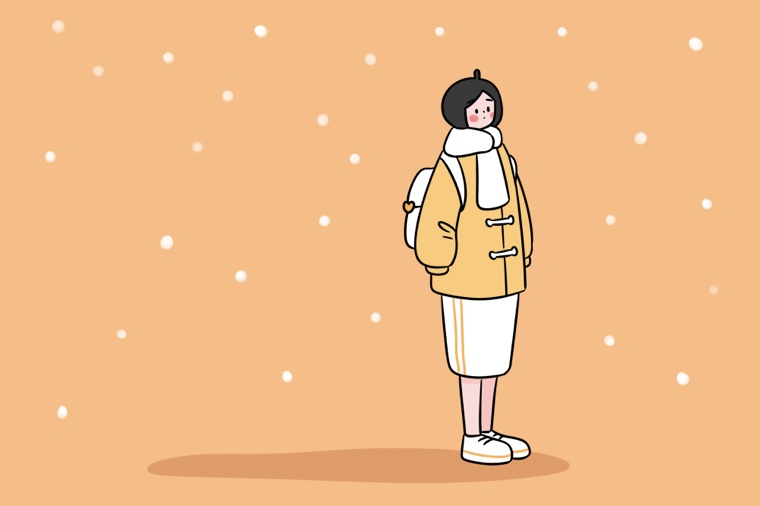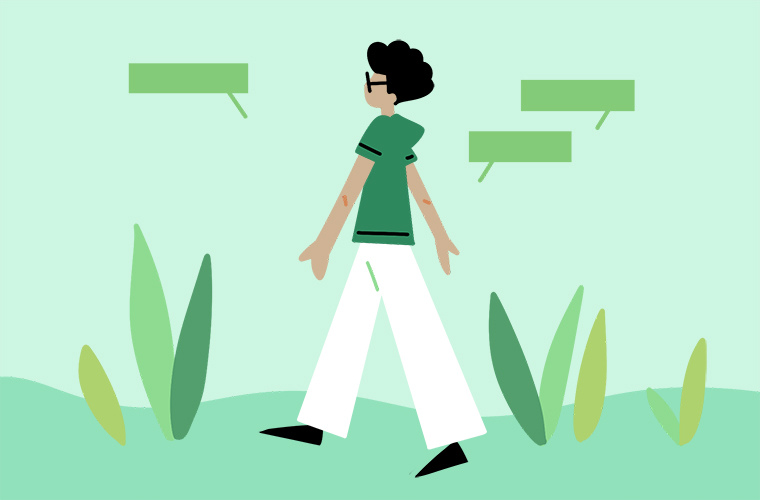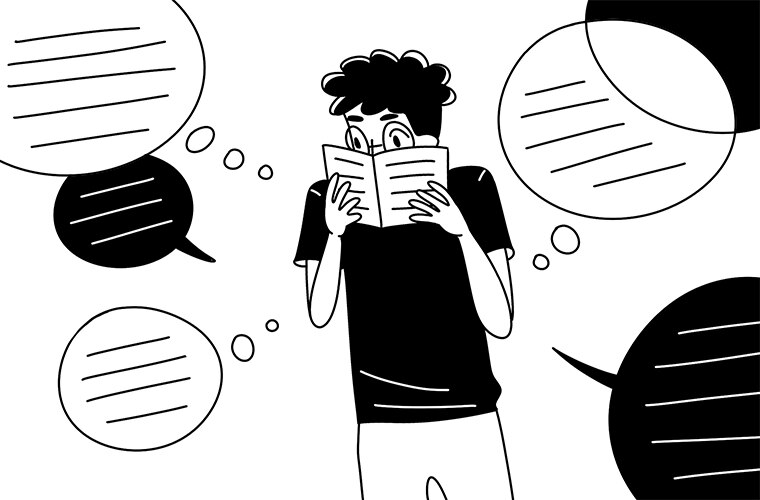2018广州市越秀区中考英语模拟试题【Word版】
由于格式问题,部分试题会存在乱码的现象,请考生点击全屏查看!
注意事项:
1、答卷前,考生务必在答题卡上用黑色字迹的钢笔或签字笔填写自己的考生号、姓名、座位号,再用2B铅笔把对应号码的标号涂黑。
2、选择题每小题选出答案后,用2B铅笔把答题卡上对应题目的答案标号涂黑,如果是E选项涂AB两个字母。如需要改动,用橡皮擦干净后,再选涂其他答案。不能答在试卷上。
3、非选择题必须用黑色字迹的钢笔或签字笔作答,答案必须写在答卷各题目指定区域的相应位置上;如需要改动,先划掉原来的答案,然后再写上新的答案,改动的答案也不能超出指定的区域;不准使用铅笔、圆珠笔和涂改液。不按以上要求作答的答案无效。
4、考生必须保持答题卡及答卷的整洁。
—、语法选择(共15小题:每小题1分,满分15分)
阅读下面短文,按照句子结构的语法性和上下文连贯的要求,从1-15 各题所给的A、B、C和D项中选出最佳选项,并在答题卡上将该项涂黑。
A young man went to visit a wise man living deep in the mountain for the wisdom of life.
“Excuse me! Could you please tell me what 1 day in our life is? Is it the day when we were born or the day when we die? Is it the day we fall in love or the day we 2 ?” The young man asked. “ 3 . The most important day in our life is today,” 4 man replied.
“ 5 is it today?” The young man felt more than surprised. “Is it because some big events have taken place today?”
“No. 6 has happened today.”
“So is it because of my visit?”
“Even if nobody visited me today, today is still very important 7 today is the only wealth we have. No matter how memorable yesterday 8 , it has gone; no matter how wonderful tomorrow 9 be, it is yet to come; but no matter how common today is, it is in 10 hands.”
The young man still wanted to ask something, 11 the wise man stopped him and said, “When we 12 about the importance of today, we have wasted a lot of it.”
The young man 13 , so he nodded his head and then went down the mountain.
Actually today is 14 valuable to be wasted. Therefore, what we should do now is 15 yesterday and tomorrow and grasp (抓) today!
( ) 1. A. important B. more important C. much important D. the most important
( ) 2. A. success B. successful C. succeed D. successfully
( ) 3. A. All B. Some C. Neither D. None
( ) 4. A. a B. an C. the D. /
( ) 5. A. How B. Why C. What D. Where
( ) 6. A. Nothing special B. Special nothing C. Something special D. Special something
( ) 7. A. if B. because C. unless D. although
( ) 8. A. is B. are C. was D. were
( ) 9. A. must B. should C. need D. may
( ) 10. A. our B. we C. us D. ourselves
( ) 11. A. but B. and C. so D. or
( ) 12. A. talked B. are talking C. were talking D. have talked
( ) 13. A. were understood B. understood C. understand D. is understood
( ) 14. A. so B. such C. very D. too
( ) 15. A. forget B. forgets C. to forget D. to forgetting
二、完形填空(共10小题:每小题1.5分,满分15分)
阅读下面短文,掌握其大意,然后从16-25各题所给的A、B、C、D项中,选出最佳选项,并在答题卡上将该项涂黑。
Mr. Ma, a famous mental (心理的) doctor from Beijing once said at an important meeting, “Now many young students can have 16 with their minds. Some students become worried 17 they have to study very hard. Others have trouble 18 on well with people around them like their parents and classmates. Parents and teachers should care more about this problem.”
Then Mr. Ma Rave some examples. One patient, a middle school student from Xi’an was doing 19 in his lessons. He thought his teachers and friends often 20 him, and he became so nervous and worried that one night he left his home without telling his 21 . Another student, a 14-year-old school girl from Shanghai, was very afraid of exams. While she was reading the exam paper, she couldn’t 22 anything to write.
A recent report from Jiefang Daily says about 18 percent of young students in Shanghai have mental problems. They often feel worried and very 23 . Unluckily, many of them won’t go and ask for help. Some think they will look stupid if they go to see a doctor. 24 won’t talk about their secrets.
At the end of the meeting, Mr. Ma 25 some good ideas to young people:
Talk to your parents or teachers often.
Take part in group activities.
Try to get on well with the people around you.
Go to see a doctor if you often feel unhappy.
( ) 16. A. problems B. questions C. ideas D. thoughts
( ) 17. A. so B. because C. though D. but
( ) 18. A. taking B. having C. getting D. doing
( ) 19. A. quickly B. well C. easily D. badly
( ) 20. A. laughed at B. aimed at C. looked at D. shouted at
( ) 21. A. teachers B. parents C. friends D. neighbours
( ) 22. A. think about B. think of C. think over D. think to
( ) 23. A. happy B. excited C. unhappy D. interested
( ) 24. A. The other B. Other C. The others D. Others
( ) 25. A. led B. lent C. offered D. passed
三、阅读(共两节,满分45分)
第一节 阅读理解(共20小题:每小题2分,满分40分)
阅读下面短文,从每题所给的A、B、C、D项中,选出最佳选项, 并在答题卡上将该项涂黑。
A
Each morning a rich man found a poor man sitting on a bench (长凳) in the park. The poor man always sat there, looking at the big hotel in which the rich man lived. One day, the rich man got out of his car and said to the poor man, “Excuse me. I want to know why you sit here and look at my hotel every morning.” “Sir,” said the poor man, “I am a failure. I have no money, no family, no home. I sleep on this bench, and every night I dream that one day I’ll sleep in that hotel.” The rich man said, “Tonight your dream will come true. I’ll pay for the best room in that hotel for you a whole month.”
A few days after, the rich man went into the poor man’s room to ask him how he was enjoying himself. To his surprise, he found that the man had moved out of the hotel back to his bench. When the rich man asked why, he said. “You see, when I was sleeping on my bench, I dreamed I was there, in the big hotel. It was a wonderful dream. But when I was there I dreamed I was back to this cold bench. It was a terrible dream, and I couldn’t get any sleep at all.”
( ) 26. The poor man lived in ______ before he met the rich man.
A. the hotel B. his home C the park D. the car
( ) 27. What did the poor man do every morning?
A. He waited for the rich man.
B. He looked at the rich man’s hotel.
C. He looked at the rich man’s car.
D. He enjoyed the clean car.
( ) 28. Which of the following is True according to the passage?
A. The poor man dreamed of sleeping in a hotel.
B. The poor man dreamed of becoming rich.
C. The poor man dreamed of owning that hotel.
D. The poor man dreamed of being the rich man’s friend.
( ) 29. Why did the poor man move out of the hotel?
A. Because he didn’t want to live in such a fine room.
B. Because he didn’t like the rich man.
C. Because he couldn’t pay for the room.
D. Because he couldn’t get any sleep at al1 there.
( ) 30. In the end, the poor man found it ______ to sleep in the hotel.
A. sorry B. nice C. wonderful D. terrible
(B)
Should teenagers be allowed to have jobs? There are several ways to look at the question. Of course, in some family situations, having a teen’s job may be good. These families usually can’t afford to buy what their children like. If the teenagers want to buy something expensive, they’ll have to go out to work.
But what about the families that are doing all right and don’t need their teens to have a job to get by?
Some parents want their teens to work so that they can learn responsibility (责任感) and stay out of trouble after school. Getting their first job also helps teach teens the value of money and how hard it is to earn. In fact, having a job is good for teens in some ways.
Not all teens, however, need the extra money by getting a job. If a teen wants to take part in after school activities such as sports or games, having a job could get in the way of that. Teens only get one chance to be teens and being on school sports teams might be the only chance in their lifetime. Once high school and college are over, it’ll be very difficult to find such a chance. So parents should think twice before allowing their children to get jobs.
There are of course some teens who really want to work and that is fine. Everyone is different. If a teen wants to work to make extra money, then he or she should be allowed to do it. As teens, they should be allowed to learn about social life.
( ) 31. Who might be the main readers of the passage?
A. Teenagers. B. Parents. C. Teachers. D. Doctors.
( ) 32. Which word might have the same meaning as the word “earn”?
A. ask B. make C. spend D. use
( ) 33. What does the writer think about teens and their jobs?
A. All teens should be asked to go out to work.
B. Poor families must ask their teens to work.
C. A teen’s job can make him or her 1earn more.
D. Rich families must ask their teens to work.
( ) 34. Which of the following is NOT true according to the passage?
A. All teens go out to work mainly because of the pocket money.
B. Some teens may cause trouble, so parents want them to work after school.
C. Taking part in after-school activities is helpful to teens.
D. Having a job is good for teens in some ways.
( ) 35. What’s the main idea for the passage?
A. Having a job is good for teens in all ways.
B. Some great ideas about teens’ jobs.
C. Parents should treat teens’ having jobs correctly.
D. Children should have jobs.
(C)
Is there intelligent (有智力的) life on other planets? For years, scientists said “no.” or “we don’t know.” But today this is changing. Seth Shostak and Alexandra Barnett are astronomers. They believe intelligent life exists (存在) somewhere in the universe. They also think we still soon contact these beings.
Why do Shostak and Barnett think intelligent life exists on other planets? The first reason is time. Scientists believe the universe is about 12 billion years old. “This is long enough for other planets to have intelligent life,” say Shostak and Barnett. The second reason is size—the universe is huge. “Tools like the Hubble Telescope (哈勃望远镜) have shown that there are at least 100 billion galaxies (星系),” says Shostak. “And our galaxy, has at least 100 billion stars. Some planets going around these stars might be similar to Earth.”
In the past, it was hard to look for signs of intelligent life in the universe. But now, powerful telescopes (高倍望远镜) allow scientists to discover smaller planets—the size of Mars or Earth in other solar systems. These planets might have intelligent 1ife. Have beings from space already visited Earth? “Probably not,” says Shostak. “It’s a long way away. However, intelligent beings may contact us in other ways, such as radio signals (信号). In fact, they may be trying to communicate with us now, but we don’t have the right tools to receive their messages. However, this is changing. By 2025, we could make contact with other life forms in our universe and we might help each other.”
( ) 36. Seth Shostak and Alexandra Barnett are ______.
A. astronomers B. farmers C. singers D. drivers
( ) 37. What is the best title for Paragraph 2?
A. The Age and Size of Earth
B. Our Galaxy: The Milky Way
C. Why Intelligent Life Might Exist
D. Earth: The Only Planet with Intelligent Life
( ) 38. Why was it hard to look for signs of intelligent life in the universe in the past?
A. There were not any smaller planets.
B. There were not any powerful telescopes (高倍望远镜).
C. The astronomers were not interested in them.
D. The Milky Way didn’t exist at that time.
( ) 39. Why haven’t beings from space visited us yet according to Shostak?
A. They’re afraid of us.
B. It’s a long way away.
C. They don’t want to see us.
D. They don’t know how to use radio signals.
( ) 40. What does the underlined phrase “life forms” in the last paragraph mean?
A. Messages. B. Tools. C. Intelligent beings. D. Radio signals.
(D)
Byron Clift, 15 | I get new clothes and shoes quite often. My parents buy them for me. So I get about $100 spent on me. All of us in our family get the same amount. I never save up to buy my own. I buy things because I like them. I get mad if I don’t get what I want. I think it’s important to wear labels. My favourite make of clothing is Nike because it’s the best make I think. |
Christine Caine, 15 | My mum buys me clothes and shoes quite often. My brother and I both have the same amount to spend. On birthdays I buy my own. I always go for named brands because they make me look in fashion. But I don’t think it’s important to wear labels. I buy their things because I like them, not because of the price or the brand. |
Daniel Knox, 16 | I get new clothes or shoes nearly every week. My mother pays for my clothes. I don’t think labels are important. My favourite make of clothes is Adidas. But I can’t get the things I want because my mother can’t afford them. I’ll just wait until she has the money. |
Emma Dickman, 16 | I don’t buy new clothes or shoes very often. My mum buys my clothes. I don’t go for named brands. Any brand will fit me. When I get my birthday money, I buy my own clothes. I’ll spend about half my money on clothes. I buy clothes because I like them, not because they are cheap or because they are named brands. I don’t think it’s important to wear labels. My favourite make of clothes is Donnay. |
( ) 41. How much does Byron get spent on him?
A. $70. B. $80. C. $90. D. $100.
( ) 42. Who likes named labels of clothes and shoes?
A. Byron Clift and Daniel Knox.
B. Byron Clift and Christine Caine.
C. Daniel Knox and Christine Caine.
D. Emma Dickman and Daniel Knox.
( ) 43. Whose favourite make is Donnay?
A. Byron Clift’s. B. Christine Caine’s.
C. Daniel Knox’s. D. Emma Dickman’s.
( ) 44. Which of the following statements is True according to the passage?
A. Byron’s favourite make is Adidas.
B. Christine thinks it’s important to wear labels.
C. Daniel can’t get all the things he wants because his family is not rich.
D. Emma will spend all her money on clothes.
( ) 45. You may see this passage from ______.
A. a forum (论坛) about clothing B. a newspaper
C. a web about saving money D. a book about students
第二节 阅读填空(共5他;每小题1分,满分5分)
根据短文内容,将下面A—E五个句子分别填入文中的空缺处,使补全后 的短文意思通顺,结构完整。请把答案的编号在答题卡上相应的题号涂黑,E选项涂AB两个字母。
A lot of people think that being in a foreign country means that you can learn the country’s language well. Some Chinese parents pay a lot of money to send their children to language schools in America. (46) ______.
However, most immigrants (移民) in America don’t speak English very well, even after living there for 20 years. (47) ______. For example, they often say things like “He made tea?” instead of “Did he make tea?” or “I help you.” instead of “I will help you.” Being in a foreign language often forces you to say wrong sentences, because it forces you to speak. (48) ______.
By making mistakes, you make your bad habits stronger. (49) ______. It is important to remember that native (本地的) speakers will not correct your mistakes. (50) ______.
A. You have to speak, because your life depends on it. B. They expect that their children will come back speaking good English. C. And it’s really hard to start speaking correctly. D. Many of them have been making mistakes. D. Instead, they will try to understand you, no matter how bad your grammar is. |
四、写作(共三节,满分35分)
第一节 单词拼写(共6小题:每小题1分,满分6分)
根据句子及所给单词的首字母写出所缺单词。在填写答卷时,要求写出完整单词。(每空限填一词)
51. I often s______ my ideas with my parents because they always support me.
52. I don’t know his r______ name. Can you tel1 me?
53. You should ask your parents’ a______ first if you want to go on a picnic with us.
54. Thank you very much for the i______ to the party. I enjoy it very much.
55. T______ I wanted to help her, my friends told me not to.
56. It was such an easy e______ that all the students got good results.
第二节 完成句子(共7小题:每小题2分,满分14分)
根据所给的汉语内容,用英语完成下列句子。(每空限填一词)
57.这个故事真有趣!我想再读一遍。
______ ______ ______ ______ it is! I want to read it again!
58.为什么他弟弟被关进了监狱?
Why ______ his brother ______ ______ ______?
59.我花了两小时才把房间打扫好.
______ ______ me two hours ______ ______ the room.
60.为了减肥,她总是在节食。
In order to lose weight, she ______ always ______ ______ ______.
61.我对吸烟没有兴趣。它只会损害我们的健康。
I ______ ______ ______ ______ smoking. It is bad for our health.
62.愚人节,我们喜欢互相捉弄对方。
We like ______ ______ ______ ______ each other on April Fool’s Day.
63.你能告诉我怎样照顾这只小狗吗?
Can you tell me ______ ______ ______ ______ the baby dog?
第三节 书面表达(共1题:满分15分)
假如你是Tommy,你的朋友Jack给你来信,抱怨他的父母对他管得太严格了,请你结合自己家庭的情况,给他写一封回信,让Jack明白每个家庭都有家规,家规其实是父母对子女的爱护。
写作提示:1、你家里的家规(只能周末看电视;只允许周末玩两个小时游戏:做一些力所能及的家务)。
2、你对这些家规的看法。
3、你对Jack的建议。
要求:1、必须包括提示内容,可以适当发挥;
2、词数:80左右(文章的开头已给出,不计入词数);
3、不得透露学校、姓名等任何个人信息,否则不予评分。
Dear Jack,
In your last letter you complained that your parents were too strict with you. Actually every family has its rules
_______________________________________________________________________________
_______________________________________________________________________________
_______________________________________________________________________________
Yours,
Tommy

孔乙己是贫困潦倒的知识分子。在书中,孔乙己是一个知识分子,满口“之乎者也”,但是他很穷,还窃书,说过“读书人的事,怎么能叫窃,”被人嘲笑,他...

自然界产生氧气的化学方程式:光合作用的反应式为6CO2+12H2O→C6H12O6+6O2+6H2O。包括光反应和暗反应两个过程。需要具备光...

有的高校没有条件,只要学业水平成绩都合格就可以,比如中国科学院大学。有的需要平常学习考试成绩,比如北京外国语大学要求高三第一学期期末成绩在全...

在四则运算中,表示计算顺序,在小括号之后、大括号之前;表示两个整数的最小公倍数;表示取未知数的整数部分;在函数中,表示函数的闭区间;在线性代...

济南开设的最好的职高学校有:济南方信集团职业高中、济南公共交通职业高中。济南市公共交通职业高级中学是由济南市公共交通总公司承办,业务属济南市...

实然:是说事物实际上就是这样的,但不同于现实性(现实性指其有合理性和客观性);应然:就是应该是怎么样的意思,比如说这件事,就应该是那样的结果...

地中海气候一种夏季炎热干燥、冬季温和多雨,雨热不同期的气候类型。地中海气候冬季受西风带控制,锋面气旋频繁活动,气候温和,最冷月的气温在4-1...

碱石灰,又称钠石灰,碱石灰是白色或米黄色粉末,疏松多孔,是氧化钙(CaO,大约75%),水(H₂O,大约20%),氢氧化钠(NaOH,大约3...